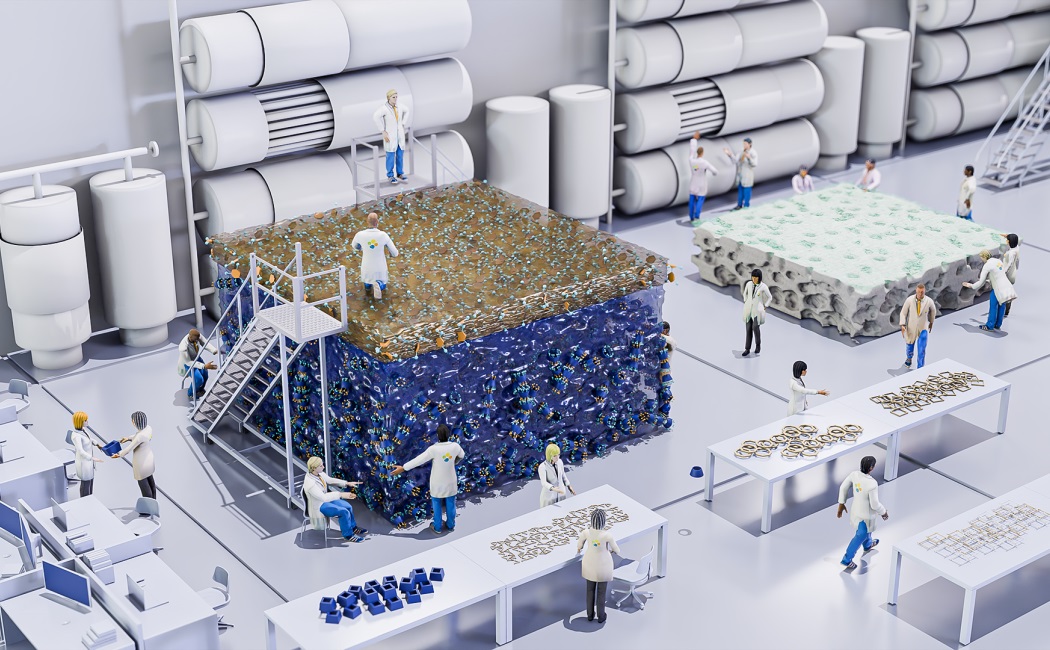


06 January, 2025
High value metals, such as lithium, could be extracted directly from seawater, lake brines, or could be recycled from electronic waste, a study of designer nanoporous membranes suggests. The membranes incorporate ring-shaped ‘macrocycle’ molecules, which form precisely defined pores that permit only the target metal to pass. Macrocycle membranes can also efficiently purify challenging mixtures of high value chemicals, such as pharmaceutical ingredients, the KAUST research team has shown.
Separating multicomponent mixtures is a core part of industrial activity ranging from raw minerals processing to fine chemical and pharmaceutical production. These steps have a large environmental footprint, however. Most separations involve energy-intensive heat-driven processes such as distillation and evaporation. “More effective separation methods would lead to a much more sustainable and profitable chemical industry, reducing the need for carbon capture at the end of the process,” says Suzana Nunes, who led the research.